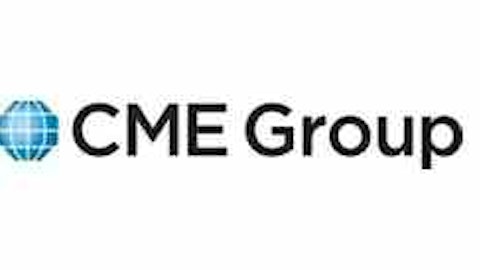RenTech Funds Soar More Than 30% (FINAlternatives)
It’s been a banner year for Renaissance Technologies, which can boast a pair of funds up in excess of 30%. That’s par for the course for the East Setauket, N.Y.-based firm’s flagship Medallion Fund, which has managed almost exclusively internal capital for a year. Medallion is up 32% this year, the New York Post reports. But just a few steps behind is RenTech’s Institutional Equities Fund, which has done more disappointing than impressing since it was launched six years ago. RIEF, which RenTech founder James Simons once dreamed of raising $100 billion for, is up 31% this year after rising almost 5% last month. The fund, which once managed as much as $28 billion, currently has $6.1 billion in assets. A third RenTech fund, Institutional Futures, isn’t doing nearly as well. That fund was up just 4.36% through September.
Citigroup Puts $800 Million in Own Hedge Funds, Private Equity (Bloomberg)
Citigroup Inc. (C), the third-biggest U.S. lender, invested about $800 million of shareholder’s money in its own private-equity and hedge funds during the third quarter as regulators seek to curtail the practice. The bank invested the money in “Citi-advised” funds while selling $1.1 billion of separate hedge-fund and private-equity assets, New York-based Citigroup said in a Nov. 4 filing. Regulators are drafting the so-called Volcker rule, which aims to restrict banks that accept deposits from making bets with shareholder money. The proposed rule would prohibit the banks from owning more than 3 percent of hedge funds and private-equity funds and also from investing more than 3 percent of Tier 1 capital in the funds. “The $800 million of purchases primarily relate to funding of previously committed investments in Citi’s private-equity and hedge funds, which are more than offset by divestitures and liquidations,” Danielle Romero-Apsilos, a Citigroup spokeswoman, said in an e-mailed statement. “We continue to make significant progress toward meeting the requirements of the Volcker Funds portion of the new financial bill.”
Korean Firm Names Ex-Hedge Fund Marketer U.S. Mutual Fund Head (FINAlternatives)
Russia’s Arbat Adds Bank Trader To Hedge Fund (FINAlternatives)
A Russian money manager has hired a former Aton Capital trader to work on its hedge fund. Igor Azarov was named to a senior trading post at Arbat Capital’s New Kremlin Fund. The fund’s manager, Yulia Bushueva, told EmergingMarkets.me that the stock fund would be Azarov’s primary responsibility. Azarov worked at UniCredit Securities before joining Aton.
Apollo Loses $1.1 Billion In Q3 (FINAlternatives)
Alternative investments giant Apollo Global Management swung to a third-quarter loss—its first quarterly loss as a publicly-traded company. The New York-based firm said its pretax economic net income, which excludes costs related to its March initial public offering, was a $1.14 billion loss. In the year earlier period, Apollo earned $315.3 million. Apollo’s loss can be almost entirely attributed to its share of its private equity funds’ losses on the quarter: The firm’s carried interest was a $1.16 billion loss on write-downs of almost $1.4 billion.
NewAlpha Seeds Varus Fund Manager (FINAlternatives)
Hedge fund seeder NewAlpha Asset Management has helped Heieck Siebrecht Capital Advisors push its assets under management to near US$100 million. Zürich, Switzerland-based Heieck is the 17th hedge fund backed by Paris-based NewAlpha. The firm, whose Varus Capital Management’s Varus Fund has posted an impressive 20.1% return this year, focuses on German stocks. The fund is up 46.7% since its debut two years ago. Heieck did not specify the size of NewAlpha’s seed investment. The firm had about US$680 million invested in 16 managers prior to the Heieck seed.
Aberdeen Asset Management to Open Fund of Hedge Funds (CityWire)
Aberdeen Asset Management is seeking to roll out its fund of hedge funds to private bank and institutional investors. Having gained a wide range of products following its acquisition of RBS Asset Management last year, the firm is planning to make its fund of hedge funds products and services more widely available to the broader market. Its $6 billion (£3.7 billion) range includes the $1.7 billion Aberdeen Orbita Capital Return and $2 billion Aberdeen Orbita Global Opportunities funds, alongside a fund of Ucits funds capability.
Norshield Asset Management Chiefs Lose Appeals (FINAlternatives)
The former heads of collapsed Canadian hedge fund Norshield Asset Management suffered a pair of legal setbacks this week in their battle with the Ontario Securities Commission. John Xanthoudakis and Dale Smith, the CEO and president of Norshield, respectively, had their appeal of the OSC’s administrative action against them last year rejected. The OSC said that the Ontario Superior Court of Justice found that the regulator was “careful, comprehensive and complete” and that Xanthoudakis and Smith were not denied a fair hearing. The court also rejected a second appeal by the men accusing the OSC of bias against them.
A New Breed of Mutual Funds Called ‘Replicators’ Adopting Hedge Fund-like Strategies (WSJ)
A handful of mutual-fund companies say they’ve built a better mousetrap when it comes to investing like a hedge fund. But for investors, these funds require a very close look under the hood. For many years, mutual funds struggled to compete with hedge funds, private investment partnerships that often offered better returns across both market ups and downs thanks to their esoteric strategies. Many mutual-fund companies have taken a page straight from the hedge-fund playbook and are offering funds that can profit when stocks and bonds fall. Others trade currencies and use complex derivatives. But a few fund companies are taking a very different—and unusual—approach. They employ so-called hedge-fund replication strategies, and they aim to deliver the same kinds of returns available among hedge funds, but without making the actual investment decisions behind those numbers.
AI Exchange to Offer Hedge Fund-like Investments (RIABIZ)
With advisors’ demand for alternative investments on the rise, a startup firm says it’s broken ground in the ability to offer those products in managed-account format. The company, AI Exchange Inc., recently inked deals with Charles Schwab and Fidelity to provide advisors with long-short strategies run by hedge fund managers on a low-minimum, multimanager platform. “There is a lot of demand for alternatives in the space we’re targeting— the RIA and broker-dealer space with high-net-worth clients,” says Marco Bitran, AI Exchange’s chief executive. “They very much want alternatives in a structure that’s palatable for them.”
Collateral Rules Relaxed to Avoid MF Global Chaos (FT)
US futures exchanges have moved to head off instability in financial markets following the collapse of broker-dealer MF Global by relaxing rules on how much collateral speculators must hold, reports the FT. CME Group and IntercontinentalExchange have temporarily cut the amount of deposits they will require from speculators, including those whose positions were transferred in bulk from MF Global to new brokers late last week. However, former MF Global customers are still being asked to up their margins, says the New York Times. Meanwhile, the missing $600m still hasn’t been found and investors are peeved at bounced checks from the erstwhile brokerage, adds Reuters.





